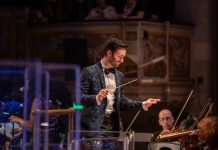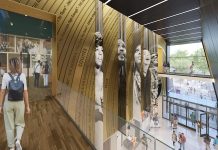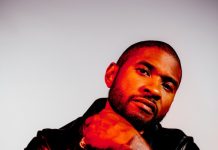
A few months ago, when everything was being canceled due to the pandemic, it seemed likely the Detroit Jazz Festival would have to accept the same fate. But the organizers of this Labor Day weekend tradition for the past 40 years had more time to figure out how the fest might proceed compared to the early summer festivals that had no choice but to call off their events. That’s why the 41st Detroit Jazz Festival will run in 2020, in a safe and virtual way.
During the four-day fest (Sept. 4-7), three stages at the Renaissance Center Marriott will host 40-plus concerts shot with three cameras and broadcast in high-definition audio and video to a variety of platforms, including TV, radio, the festival’s website, and its new app. There will be no replays or on-demand options; you’ll have to watch and listen in real time.
The festival will open Friday night with a four-movement composition called “Justice,” which was composed specially for the event. A collaboration amongs vocalist Naima Shamborguer, pianist Michael Jellick, bassist Robert Hurst, and the Detroit Jazz Festival All-Stars Generations Band, the piece is a statement about civil rights and racial equality, written in response to the current political climate.

The festival’s transition to a virtual platform means it has shifted to focus heavily on local talent — a development spokesperson Matt Lee says is hardly a disappointment. “Detroit jazz artists are as good as anyone in this world,” he says. Standout hometown heroes, such as husband-and-wife duo Ursula Walker and Buddy Budson, the Rodney Whitaker Sextet with vocalist Rockelle Fortin, and jazz drummer Gayelynn McKinney and the McKinney Zone, will be performing throughout the weekend.
The festival isn’t completely devoid of big-name out-of-towners, however. Saxophonist Pharoh Sanders is scheduled to perform on opening night, while Grammy Award-winning pianist Robert Glasper will be among the artists to close out the festival on Sept. 7.
Days two through four of the Detroit Jazz Festival will feature eight to 10 hours of performances, so you should head over to to map out the days and times of the artists you want to watch. Or you could just have the festival playing in the background at your house via Detroit Public Television, Channel 22 (Detroit’s new arts and culture station), WRCJ 90.9 FM, WDET 101.9 FM, or the Detroit Jazz Fest LIVE! app. For $20, the app will also give you access to all Detroit Jazz Festival livestreams for the next year.
COVID-19 changed everything. But it’s comforting to know the Detroit Jazz Festival found a way to present itself in 2020, a balm of tradition during a time when so many of our customs have been smashed.
|
| Ěý |
|









